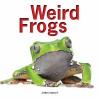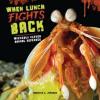
The Drug Hunters: The Improbable Quest to Discover New Medicines
By Donald R. KirschFrom Ötzi the Ice Age hunter-gatherer to billion-dollar pharmaceutical research and development labs people have been looking for substances to ease pain, cure disease and prolong a healthy life.
In The Drug Hunters we follow along the circuitous paths drugs can take on their way to the pharmacy shelf. One antifungal drug that was researched as a cure for athlete’s foot is now used in anti-rejection therapies. The birth control pill started with Swiss dairy farmers' efforts to keep their cows producing milk. We also learn how the earliest synthetic dye companies transformed into modern-day

















 Wesley the Owl
Wesley the Owl


